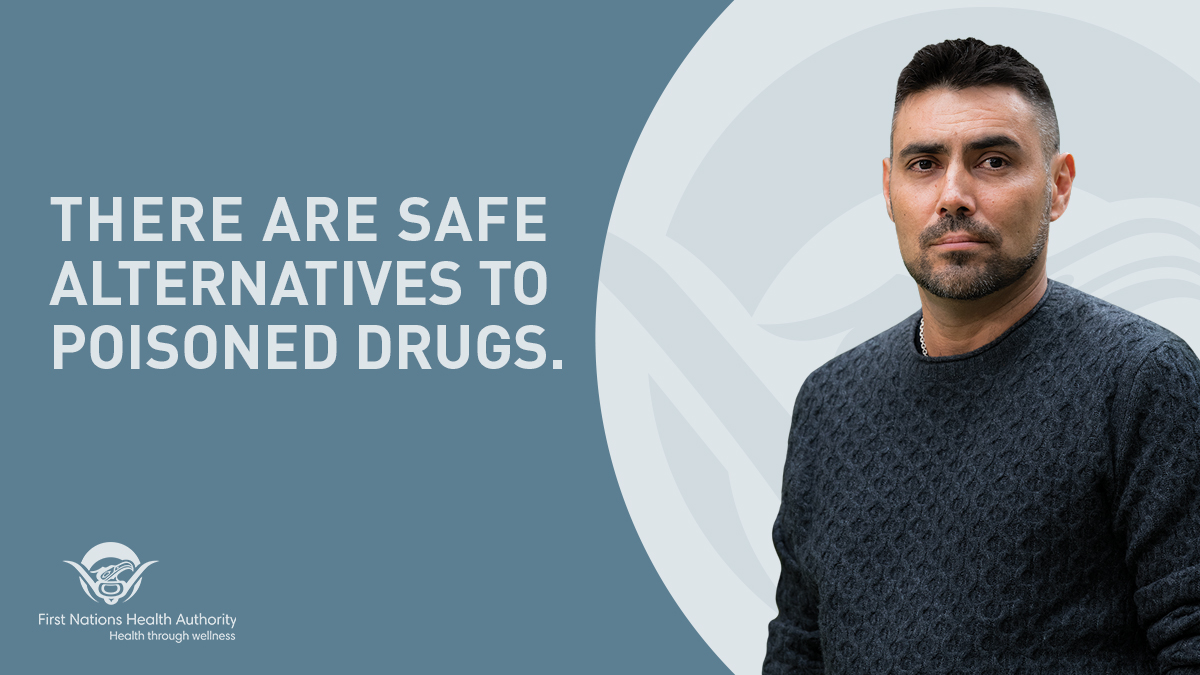
Today, on International Overdose Awareness Day, the First Nations Health Authority (FNHA) launched more supports and resources for Indigenous people affected by BC's dual public health crises: the overdose crisis and the COVID-19 pandemic.
The FNHA has started an overdose prevention public education campaign that includes important messages on the FNHA's website and social media platforms. In two weeks, the campaign will expand with transit shelter advertising in five cities throughout the province. The FNHA is also now offering the First Nations Virtual Substance Use and Psychiatry Service, which allows First Nations people in BC to virtually access substance use addiction medicine specialists/counsellors and psychiatrists. This service will help ensure accessibility to more specialized services, especially to people who live in rural areas.
The FNHA developed these resources in response to increased demand for mental health and wellness supports during the COVID-19 pandemic and the tragic increase in deaths due to overdose. Public health measures such as physical distancing and staying home are having a tragic impact on overdose rates as people who use substances are less likely to access harm reduction services and may be using alone more often than they would have before the pandemic. In addition, the pandemic has disrupted the drug supply, resulting in a much more toxic drug supply
The situation is having a greater impact on First Nations individuals than on the rest of the population. Between January and May 2020, 89 First Nations individuals died in BC due to overdoses – a 93 per cent increase in such deaths compared to the same period last year. During this period, 16 per cent of all overdose deaths in BC were Indigenous people, who account for just 3.3 per cent of the province's population. This means First Nations people died at 5.6 times the rate of other BC residents during this 2020 period. In 2019 the ratio was 3.8.
The new overdose reduction public education campaign
This campaign is aimed at preventing overdose deaths and reducing harms to Indigenous people in BC during the pandemic. It focuses on reminding people who use substances of the extreme danger of using alone and of the availability and locations of harm reduction services and supports. It also focuses on encouraging substance users' families and friends to support and not shame, judge or stigmatize them, which in itself could save lives as stigma can prevent people seeking help.
“It is more important now than ever to be open-hearted to people who suffer from addictions," says Dr. Shannon McDonald, the FNHA's Chief Medical Officer. “Let's stop shaming addiction and realize that substance use is a health and social issue, not a moral one. We can help save lives by being understanding and supportive rather than blaming and shaming."
First Nations Virtual Substance Use and Psychiatry Service
This new service provides mental health and substance use care closer to home for First Nations people and their family members (including non-status family members). Like the FNHA's First Nations Virtual Doctor of the Day Service, the Virtual Substance Use and Psychiatry Service offers services aligned with the principles and practices of cultural safety and humility.
“This service is urgently needed," says Dr. Nel Wieman, Acting Deputy Chief Medical Officer, who is a psychiatrist by training. “Even before the pandemic, accessibility to these kinds of specialty services was an issue. During these dual public health emergencies it becomes even more important to increase mental health and wellness supports for BC First Nations people."
Learn more at: www.fnha.ca/harmreduction

